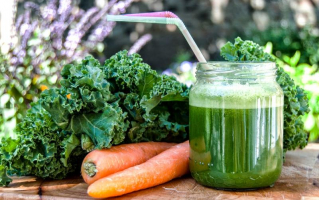Top 5 Health Benefits of Amla Juice
Amla is a kind of Asian tree sometimes referred to as Indian gooseberry. The tree is renowned for its tiny green fruits, which have been described as having a ... read more...peculiar flavor that is sour, bitter, and astringent. For a quick and simple way to add some extra nutrients to your diet, it's also offered as a powdered supplement or a drink. In addition to being delicious and varied, amla juice is also highly nourishing and associated with several health benefits. Read on for more information.
-
Amla juice is high in vitamin C, a water-soluble vitamin that works as an antioxidant. According to one research, amla is one of the highest sources of vitamin C, with each fruit containing 600-700 mg of vitamin C. Vitamin C can improve immune cell activity in addition to protecting cells from oxidative damage. According to one assessment of animal and human research, consuming vitamin C on a daily basis may help prevent some types of infections and may even lessen the duration of the common cold.
Prior animal research discovered that giving mice significant quantities of amla extract could protect them against oxidative stress and cell damage induced by arsenic. More study is needed, however, to discover how amla juice affects immunological function in individuals.

Promotes immune function 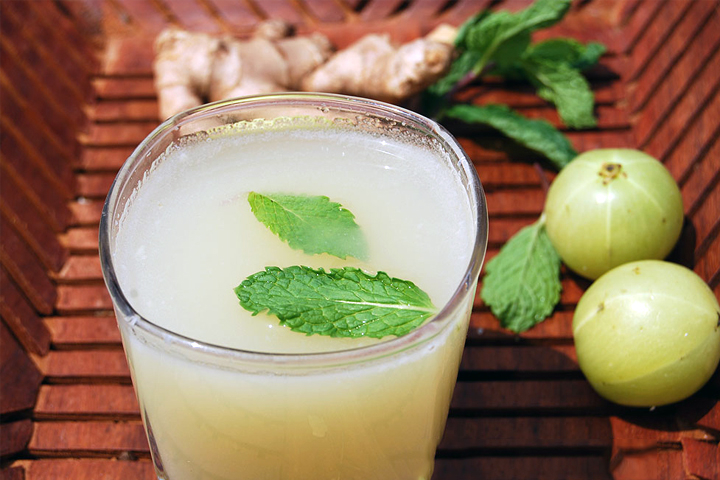
Promotes immune function -
Surprisingly, a recent study suggests that amla juice may have various digestive health advantages. For example, in one research of 68 persons with GERD, taking two 500-mg tablets of amla extract twice daily for four weeks resulted in considerable decreases in the severity and frequency of heartburn and regurgitation.
Another animal research published in 2011 discovered that amla fruit has antidiarrheal qualities and may inhibit muscular spasms, which might aid in the treatment of stomach cramps and discomfort. Several earlier animal studies suggest that amla extract may aid in the healing and prevention of stomach ulcers, possibly due to its antioxidant content. More research is needed to determine whether amla juice directly impacts digestive health in humans.
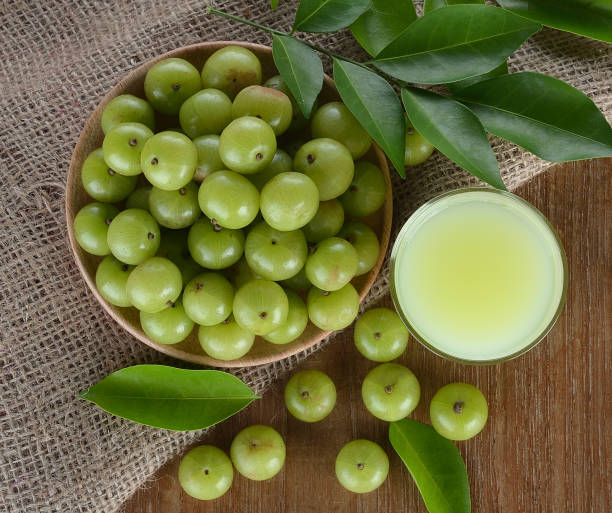
Support healthy digestion 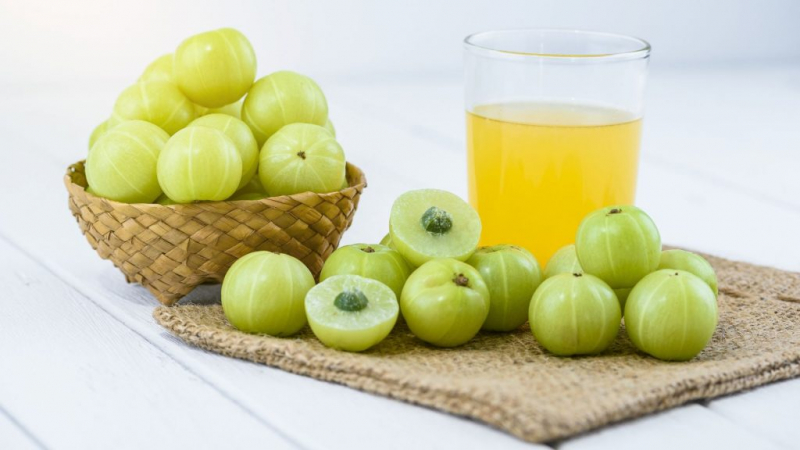
Support healthy digestion -
Several studies show that amla juice may benefit several aspects of heart health. In one study, 98 participants with abnormal blood lipid levels were given 500 mg of amla extract twice daily for 12 weeks. This lowered their triglyceride, total cholesterol, and LDL (bad) cholesterol levels. Furthermore, as compared to a control group, individuals who ingested amla extract had a 39% drop in the atherogenic index of the plasma. The atherogenic index assesses the likelihood of excessive cholesterol accumulation in the arteries.
Another small research discovered that taking amla extract for 12 weeks decreased various risk factors for heart disease in 15 persons who were overweight or obese, resulting in lower cholesterol levels and inflammation. Furthermore, some research suggests that amla extract may lower blood pressure, which is another major risk factor for heart disease. Keep in mind, however, that these studies look at the effects of highly concentrated amla extract dosages rather than amla juice. More research is needed to discover whether amla juice has similar advantages for heart health.
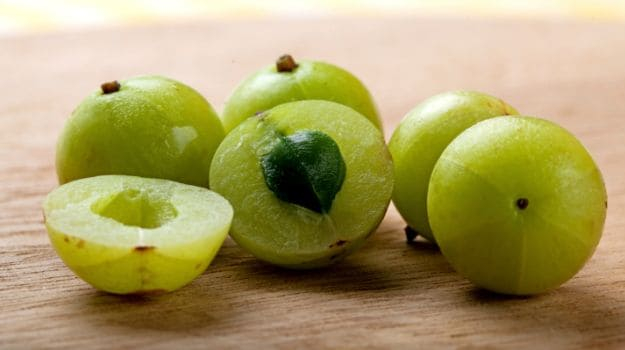
Promotes heart health 
Promotes heart health -
Amla is frequently used to promote hair development and prevent hair loss. In one study involving 42 persons suffering from hair loss, using a serum containing amla and other substances such as coconut water and selenium to the hair daily for 90 days resulted in substantial gains in hair growth and density.
Prior research discovered that amla inhibited a particular enzyme involved in hair loss. Amla extract, according to one test-tube research, may stimulate hair growth by increasing the proliferation of particular cells in hair follicles. While it is unknown if drinking amla juice will aid with hair development, it does include some minerals that may be useful, such as antioxidants and vitamin C.
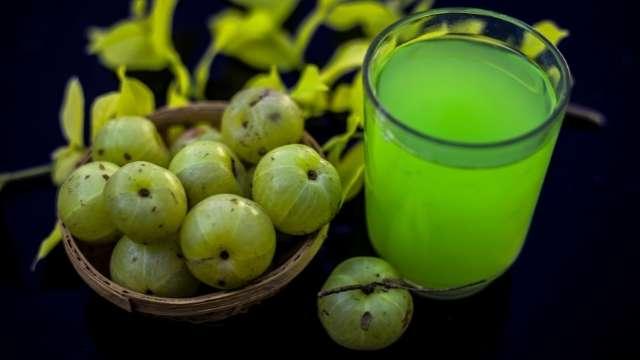
May increase hair growth 
May increase hair growth -
According to a study, amla juice may benefit kidney health owing to its antioxidant content. For example, one animal study found that giving rats amla extract helped protect against kidney damage and preserve renal function. Similarly, an older animal study found that amla extract reduced oxidative stress, which helped prevent age-related kidney failure.
In addition, in one animal investigation, amla extract was reported to help restore renal function and boost antioxidant status in rats given medicine to induce kidney damage. More research is needed to discover how consuming amla juice in regular dietary quantities affects human kidney function.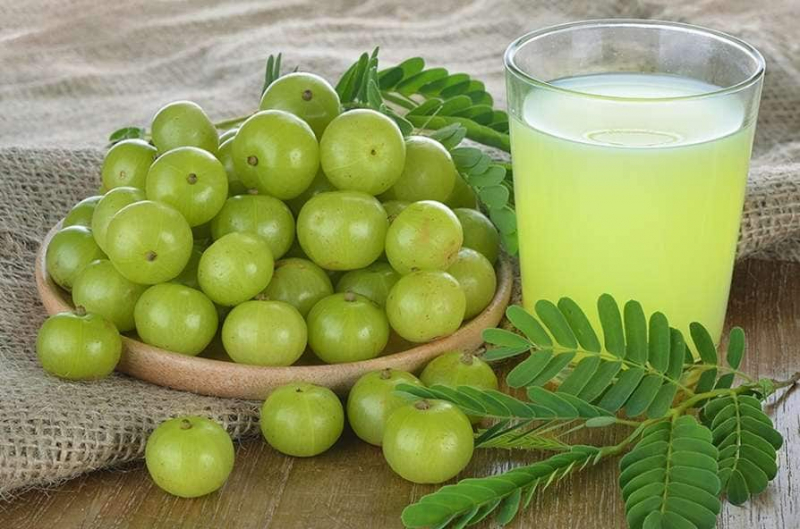
Improves kidney health 
Improves kidney health




















